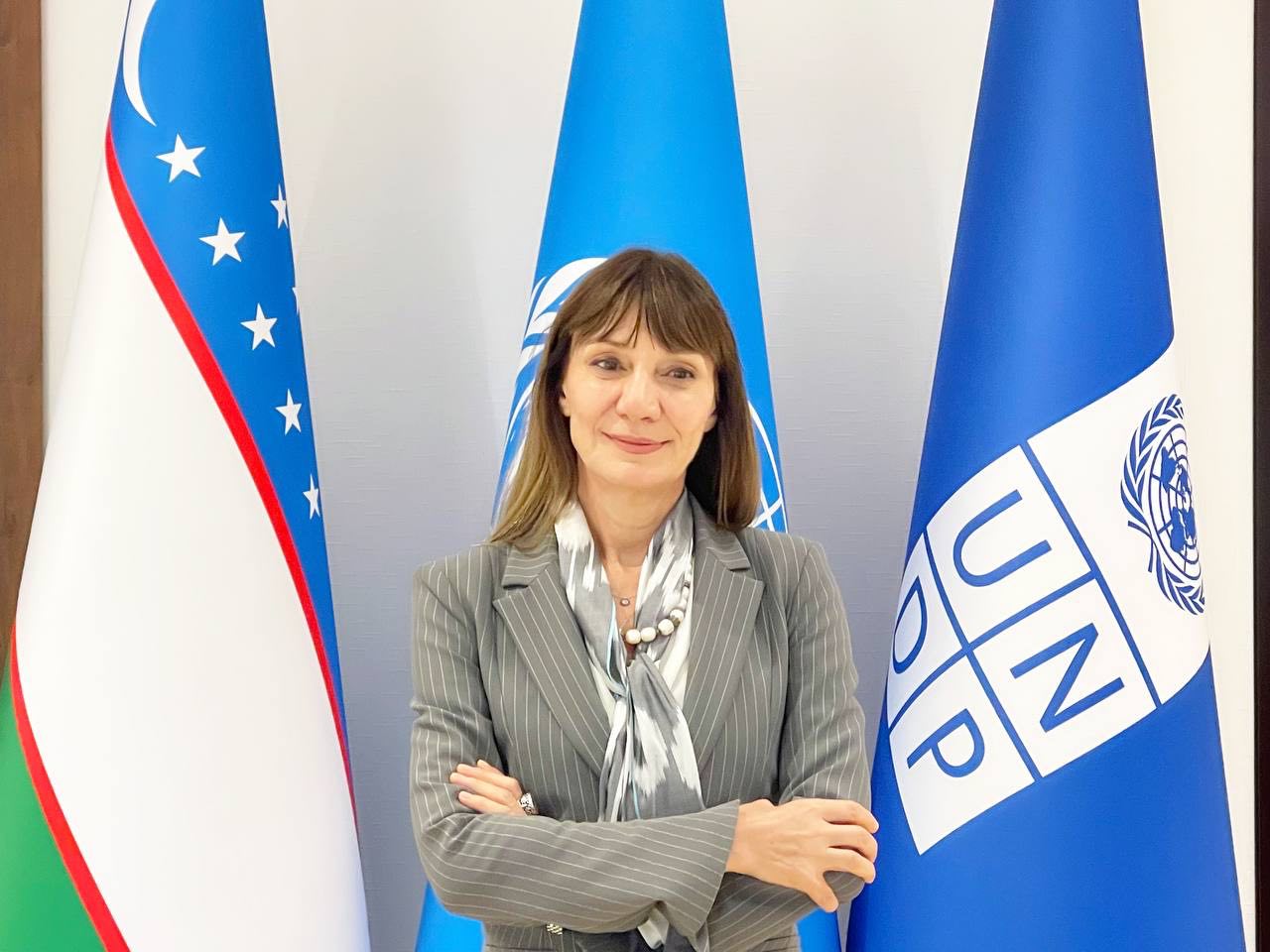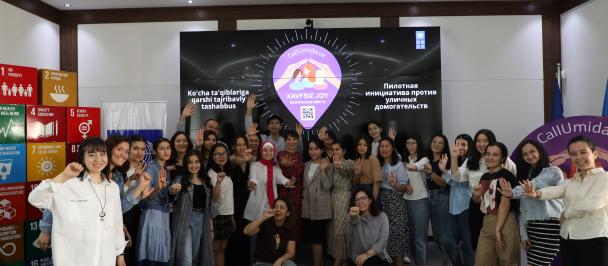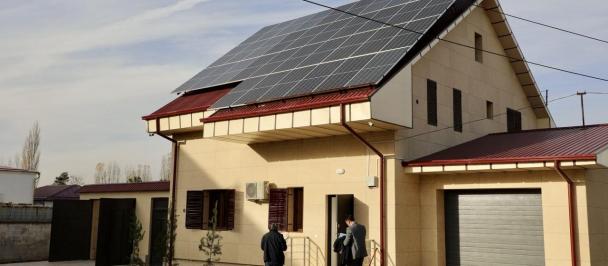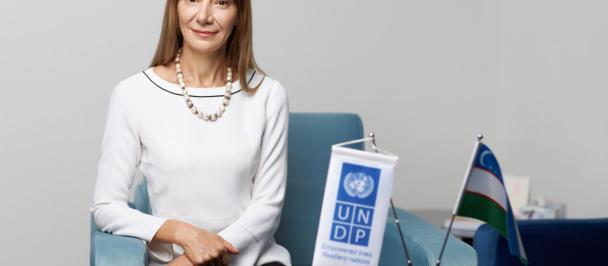Reflecting on Years of Partnership: Matilda Dimovska on her Journey in Uzbekistan
August 3, 2023

As my mission as UNDP Resident Representative in Uzbekistan comes to a close and during the year when UNDP celebrates its 30th anniversary of work in Uzbekistan, I take a moment to reflect on the incredible journey I have experienced over the past years, for my final column in gazeta.uz.
It has been an honor and privilege to witness the remarkable progress made by Uzbekistan and to contribute to the nation's development agenda. Allow me to share some of the highlights and achievements we have accomplished together.
Progress in Human Development Uzbekistan has experienced a continuous rise in the Human Development Index. Over two decades, the country's human development indicators have improved by 20 percent, a testament to the collective efforts invested in education, healthcare, and social inclusion.
Globally, the world is facing a crisis of uncertainty. These are difficult times for many people; they may change us in ways we cannot yet imagine. Yet, there is room for hope because there are many positive examples, and Uzbekistan is an important part of that hope.
A Journey of Transformation and Achievements Uzbekistan, a country in the midst of transformation, has made significant strides towards sustainable development. Over the years, we have witnessed the country's commitment to the 2030 Agenda and the Sustainable Development Goals (SDGs), with robust systems in place to monitor progress.
Uzbekistan's commitment to climate action was demonstrated through its enhanced Nationally Determined Contributions, ambitious sustainable energy transitions, and initiatives aimed at tackling deforestation in the Aral Sea region and beyond. Uzbekistan has been actively promoting regional cooperation and critical global initiatives, such as turning the Aral Sea region into a zone of technological innovation.
Our joint advocacy and work led to a substantial increase in protected nature areas in Uzbekistan, from 4.6% to an impressive 14.8% in just six years. In the face of climate change, this accomplishment holds tremendous significance.
The recent inclusion of the ecological right in the new Constitution, along with the establishment of a new Ministry, surely creates momentum and expectations for accelerated environment and climate action in Uzbekistan and the broader Central Asia region. Systematic implementation of initiatives like Yashil Makon, Integrated Roadmap for the Aral Sea will be an important part of the solutions.
The commitment to gender equality has played a pivotal role in supporting women's empowerment and fostering sustainable and equitable growth in Uzbekistan. Over the years, we have seen many laws, state interventions, and institutions adopted and introduced to promote gender equality. Making them work in congruence is now the challenge, meaning ensuring that Uzbekistan actually has strong and working policies, laws, and institutions in place to enable women to act, grow, and prosper will take more effort.
For example, while progress has been made with the recent criminalization of violence against children and women, the topic requires further attention as the full implementation tasks remain. Attitudes and cultural norms that perpetuate gender inequality and violence against women need to be continuously addressed. Access to justice, response services, and resources for survivors of gender-based violence will have to be part of the response.
Over the past few years, in support of an ambitious transformative agenda, Uzbekistan shifted its public and, increasingly, private finance towards its development ambitions. For example, Uzbekistan became the second country in the world and the first in the region to issue a sovereign SDG Bond, a groundbreaking step towards achieving the SDGs. The introduction and nationwide expansion of participatory budgeting in Uzbekistan have empowered citizens to actively participate in decision-making processes, reinforcing the principles of transparency and accountability. Still, much more can be done to align public and private financing with the development goals. For example, solutions that simultaneously incentivize gender and green investments through blended finance mechanisms would be very useful and are under development.
As we refer to the good achievements, there are many aspects that could and should be looked at if the notion of a social state and economic growth in balance with nature is to be achieved. The key ingredients of committed leadership, aspiration for international standards, capable human capital, rich nature resources, and an impressive historical legacy are the basis for Uzbekistan to continue thriving in the future. A country can thrive only if its people thrive, and at the end, it is all about the opportunities given to the people, in all its forms.
As I embark on new endeavors, I carry with me the memories of our shared accomplishments and the unwavering hope for a better world that we co-create. Having spent more than four years in this country, I feel deeply connected to Uzbekistan; it will forever hold a special place in me.
Katta Rahmat, O’zbekistonim.

 Locations
Locations



